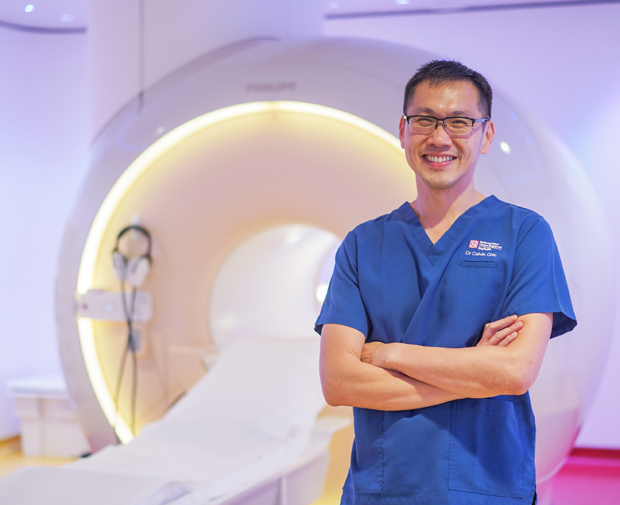Mdm Josephine Tan feels fortunate to have participated in the REVERSE-LVH study because it led to the discovery of a serious heart condition in her.
In Singapore, the prevalence of hypertension has increased from 24.2 per cent in 2017 to 35.5 per cent between 2019 and 2020. It is a major cause of heart disease caused by narrowed heart arteries as well as stroke and heart failure.
A study in Singapore has conclusively proven for the first time that myocardial fibrosis (scarring in the heart muscles) predicts worse outcomes in patients with hypertension (high blood pressure). The National Heart Centre Singapore (NHCS) study, titled REMODEL (Response of the Myocardium to Hypertrophic Conditions in the Adult Population), sets the stage for another ongoing trial (REVERSELVH) that such scarring can be reversed through customised treatment.
Instead of the traditional way of detecting scarring through heart muscle biopsies, REMODEL employs the use of noninvasive cardiac magnetic resonance imaging (CMR), also known as cardiac MRI. CMR was performed on close to 800 patients with hypertension. Led by Associate Professor Calvin Chin, Clinician Scientist and Senior Consultant, Department of Cardiology, NHCS, the patients were followed up for adverse cardiovascular events over a period of more than three years.
High blood pressure creates stress to the heart. Initially, the heart can cope with this added stress. However, over time, the sustained stress causes the heart muscles to thicken, leading to heart muscle scarring, said Assoc Prof Chin, who is also Director of Cardiac MRI at NHCS. Because myocardial fibrosis reduces contraction of the heart, it can lead to heart failure or even death.

“Although anecdotal reports have previously shown the presence of heart muscle scarring in patients with hypertension, this is the first study that confirms the association between scarring of heart muscle and cardiovascular outcomes in patients with hypertension,” said Assoc Prof Chin. “We found that heart muscle scarring is a strong predictor of adverse outcomes even after taking into consideration patients’ age, sex and systolic blood pressures.”
Encouraging results
Myocardial fibrosis typically happens in patients who have previously suffered from heart attacks, so only patients without a history of heart attacks were selected for the study. This confined the occurrence of myocardial fibrosis to factors such as the patient’s susceptibility to high blood pressure, genetic predisposition and medical co-morbidities such as diabetes.
The researchers found that the heart muscles’ response to hypertension in patients is varied. While two patients may have similar blood pressures, their heart muscle characteristics can differ. This presents opportunities to personalise treatment for hypertensive patients who have heart muscle scarring to reduce the risk of future cardiovascular events.
Although conventional medical treatment is able to control one’s blood pressure, it does not completely eliminate the risks of cardiovascular disease. For instance, about 30 per cent of cardiovascular events occur in patients with well-controlled blood pressure.
REVERSE-LVH examines the potential of reversing heart muscle scarring through the use of specific therapies targeted at fibrosis in patients with hypertensive heart disease. It also compares the efficacy of medications in regressing myocardial fibrosis. Recruited patients undergo CMR at the beginning of the study and after a year of treatment to assess changes in the amount of myocardial fibrosis. “What is encouraging about the results is that we are seeing evidence of reversal for the first time,” said Assoc Prof Chin. Even after their heart muscles are normalised following the tailored treatment, patients in the study are encouraged to continue with the prescribed medications.
Research candidate
Mdm Josephine Tan (not her real name), who is in her 60s and a patient with hypertension, participated in REVERSELVH. “I am fortunate that I went for the CMR, otherwise I would not have found out that I have this serious heart condition,” Mdm Tan said, adding that the CMR has given her a “second chance at life”.
Get the latest updates about Singapore Health in your mailbox! Click here to subscribe.
